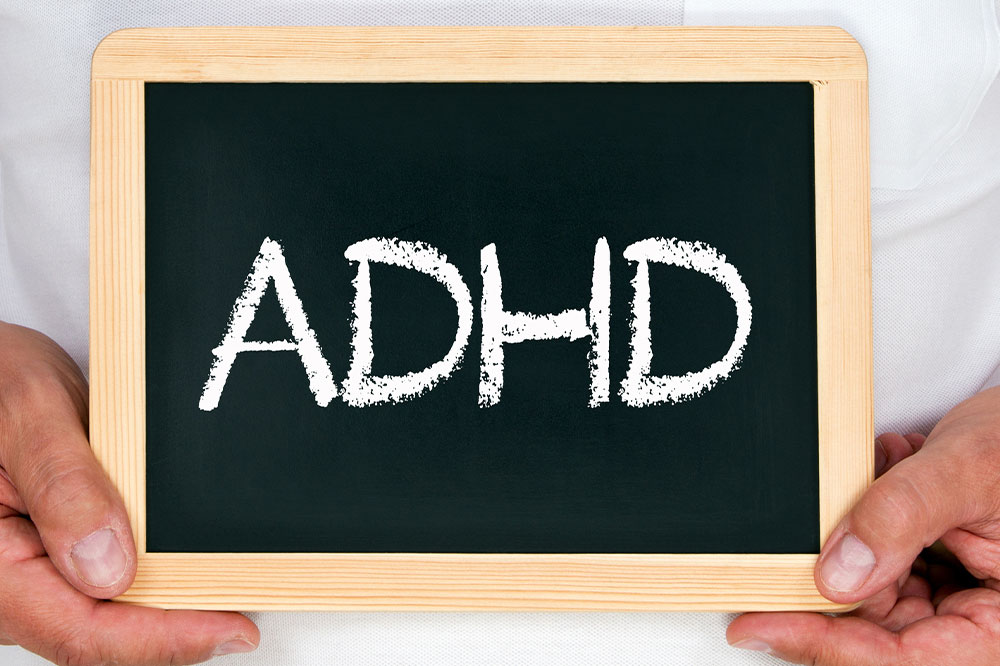Comprehensive Natural Approaches to Managing ADHD Effectively
This article explores comprehensive natural methods for managing ADHD effectively. It emphasizes understanding the condition, prioritizing sleep and nutrition, engaging in regular exercise, organizing tasks, and practicing self-compassion. These holistic strategies help improve focus, emotional regulation, and overall well-being. Suitable for anyone seeking non-pharmaceutical approaches, the guide offers practical tips and insights to empower individuals with ADHD to lead balanced, fulfilling lives through lifestyle adjustments and support systems.

Comprehensive Natural Approaches to Managing ADHD Effectively
Attention Deficit Hyperactivity Disorder (ADHD), once primarily associated with hyperactivity and impulsiveness, is now recognized as a complex neurological condition that influences various aspects of daily life. Historically, ADHD was seen merely as a behavioral problem marked by restless energy and difficulty staying still. However, contemporary research and clinical observations have expanded our understanding, revealing that ADHD also significantly impacts concentration, organizational skills, emotional regulation, and impulse control. This broader perspective emphasizes the importance of holistic management strategies, especially those that leverage natural methods aimed at improving focus, mood stability, and overall well-being.
Developing effective, non-pharmaceutical strategies can substantially improve quality of life for individuals with ADHD. Such approaches focus on lifestyle modifications, behavioral techniques, and nutritional adjustments that can help manage symptoms naturally. Here, we delve into practical, evidence-based methods that can be incorporated into daily routines to foster better focus, reduce impulsiveness, and promote mental clarity.
Understanding Your Condition
The first critical step in managing ADHD is gaining comprehensive knowledge about the disorder. Understanding how ADHD manifests in your life enables you to identify specific challenges and develop targeted strategies. Use trusted, scientifically-backed resources such as reputable medical websites, books written by experts, and information provided by healthcare professionals. Accurate knowledge helps in recognizing symptoms like inattentiveness, impulsivity, hyperactivity, frustration, disorganization, and emotional sensitivity. Acceptance of these symptoms as part of your neurological makeup is essential for implementing effective management techniques. Self-awareness also fosters patience and reduces self-criticism, making it easier to adopt sustainable habits.
Prioritize Quality Sleep and Balanced Nutrition
Sleep and nutrition play pivotal roles in managing ADHD symptoms naturally. Sleep deprivation can exacerbate impulsiveness, irritability, and concentration problems. Establishing a consistent sleep routine involves turning off electronic devices at least 60 minutes before bedtime, creating a calm, dark environment, and maintaining a regular sleep schedule. Using relaxation techniques such as deep breathing or meditation can further improve sleep quality.
Nutrition influences neurotransmitter production, which affects mood and attention. Consuming adequate amounts of protein-rich foods — such as lean meats, eggs, beans, and dairy — provides amino acids necessary for dopamine production. Dopamine is a neurotransmitter closely involved in motivation and focus. Incorporate whole grains, fresh fruits, vegetables, and healthy fats like omega-3 fatty acids from fish oil, flaxseeds, or walnuts to support cognitive function. Avoid processed foods and excessive sugar, which can lead to energy fluctuations and increased impulsivity.
Incorporate Regular Physical Activity
Physical exercise offers profound benefits for individuals with ADHD by increasing blood flow to the brain, promoting neuroplasticity, and balancing neurotransmitter levels. Engaging in activities like brisk walking, cycling, swimming, or sports for at least 30 minutes daily can significantly improve attention span and reduce hyperactivity. Exercise releases endorphins, which elevate mood, and stimulates the production of dopamine and norepinephrine, helping to enhance brain function and emotional regulation. Incorporating movement into daily routines, even through short breaks or stretching exercises, can make a noticeable difference in managing symptoms.
Effective Task Organization and Time Management
One of the hallmark challenges faced by those with ADHD is feeling overwhelmed by responsibilities. Developing structured systems for organizing tasks can alleviate this burden. Use planners, digital apps, or visual aids like calendars and sticky notes to break down complex tasks into smaller, manageable steps. Prioritize tasks by urgency and importance, and set achievable goals with realistic deadlines. Creating routines helps develop consistency, reduces forgetfulness, and minimizes procrastination. Additionally, establishing designated spaces for belongings and regular schedules for daily activities promote a sense of order and control.
Cultivate Self-Compassion and Seek Support
Managing ADHD naturally requires patience and kindness toward oneself. Change doesn’t happen overnight; it is a gradual process of trial, adjustment, and perseverance. Celebrate small achievements to build confidence and motivation. Seeking psychological support through therapy, coaching, or support groups offers emotional validation and practical guidance. Cognitive-behavioral therapy (CBT), for example, can address negative thought patterns and help develop coping skills. Online communities and local support groups provide a sense of belonging and shared understanding, which can be invaluable in maintaining motivation and resilience throughout the journey.
In conclusion, adopting a holistic, natural approach to managing ADHD involves understanding the disorder, optimizing sleep and nutrition, engaging in regular physical activity, organizing tasks effectively, and practicing self-compassion. While these strategies may not eliminate symptoms entirely, they empower individuals to lead balanced, productive lives and improve their overall mental health. Combining lifestyle modifications with professional guidance creates a comprehensive plan tailored to each person's unique needs, leading to sustainable improvements and a better quality of life.





